peep in child health clinics in oxfordshire
Peep practitioners, working alongside health staff, began to provide an informal Peep session in two child health clinics in Oxford in 2009. These Peep drop-in sessions are known as Early Explorers. The Peep-trained practitioner spends time with families while they are attending the child health clinic or waiting to see a health visitor. They set up a play space on a quilt on the waiting area floor, with treasure baskets and picture books. The practitioner greets all families as they come in, and engages with as many as possible. This includes talking with families about parent-child interaction, child development and ideas to try at home, inviting and encouraging parents/carers to play with their baby or child, and sign-posting families to other local provision.
The Peep-trained practitioner could be someone who already works in the child health clinic such as a nursery nurse, or from elsewhere in the community, such as a children’s centre worker. A follow-on Early Explorers group can also be useful, inviting families who are hesitant or reluctant to access other services.
benefits of partnership work
A two-year research project on Early Explorers, led by Professor Jane Barlow and Chris Coe at the University of Warwick (2009-2011), identified various benefits from this joint working approach. The health and early education/family support elements complement each other. The joint working offers opportunities to get to know families who have not accessed other services. Families can be offered 1:1 support or a place at an Early Explorers group, or be signposted on to other services, as appropriate.
The development of such partnership working between health and the voluntary sector can contribute effectively to delivery of the Healthy Child Programme and similar programmes. It may also help to change public perspectives about the role of child health clinics, from an emphasis on physical well-being to a focus on the development of the ‘social baby’. It enhances the opportunity for early intervention, during the crucial first months of life, to foster parent-baby responsiveness and interaction, leading to positive attachment. For many families these clinics represent a real opportunity to get to know others in a similar situation in their own locality, to develop friendship and support, and thereby to increase social capital, factors that are not only important for healthy families but also for healthy communities.
feedback from parents
Parent attending the clinic drop-in session:
- ‘The first time when I walked in there, there were two other babies and [the Peep Practitioner] was showing them books, baby books and those bottles with shiny stuff in it with glitter and so on. And they were so like very… curious what’s there and so on. So I just went wow that’s really good. I wouldn’t think about that. Because she’s my first child and to be honest with you I didn’t know what to do with her. Like how to play with her and what to show her, how to develop her thinking.. you know...stimulate her brain. I do remember she was quite...crying... and [the Peep Practitioner] showed me the movement, how to calm her down, it was really good, I took a lot from the group and the approach of the staff.’
Parents attending the Early Explorers group:
- During interviews with parents attending an Early Explorers group, nine of the ten said they would not previously have accessed any other group provision. They found the sessions supportive, confidence-building and enabling.
feedback from health visitors
The child health clinic offers a unique opportunity to meet and forge relationships with parents in a non-stigmatising, non-threatening environment, where families already choose to go. Using a universal approach where all families are welcome, vulnerable and unsupported parents can be identified and offered more targeted services.
- ‘More vulnerable families do come to clinic, they are not regular attenders to clinic but they do come, say for a vaccination and that’s when we can direct them to Peep ....and Peep is so approachable and non-threatening that we have actually engaged some of our more difficult and harder to reach families with Peep. So I really think that it’s a harmonious relationship that benefits the mother and child.’ (Health visitor)
- ‘Peep complement our service and I feel we complement Peep’s service. I find when I do clinic that some Mums come just to come to Peep which I think is wonderful and we have been able to introduce parents to the concept of Peep, something that they didn’t know about. Some Mums were unaware of the need to communicate with their baby, even thought they were not verbally communicating back so you know, it’s been a revelation to some Mums, just how important it is to stimulate your baby.’ (Health visitor)
Feature box colour:
Parent comment on Peep practitioner presence at child health clinic: "Normally it’s just you go and don’t really talk to each other unless you know them anyway. But with Peep there everyone seems to talk to each other. It's more relaxed."
> Read more about the Early Explorers child health clinic study carried out by Professor Jane Barlow and colleagues at the University of Warwick
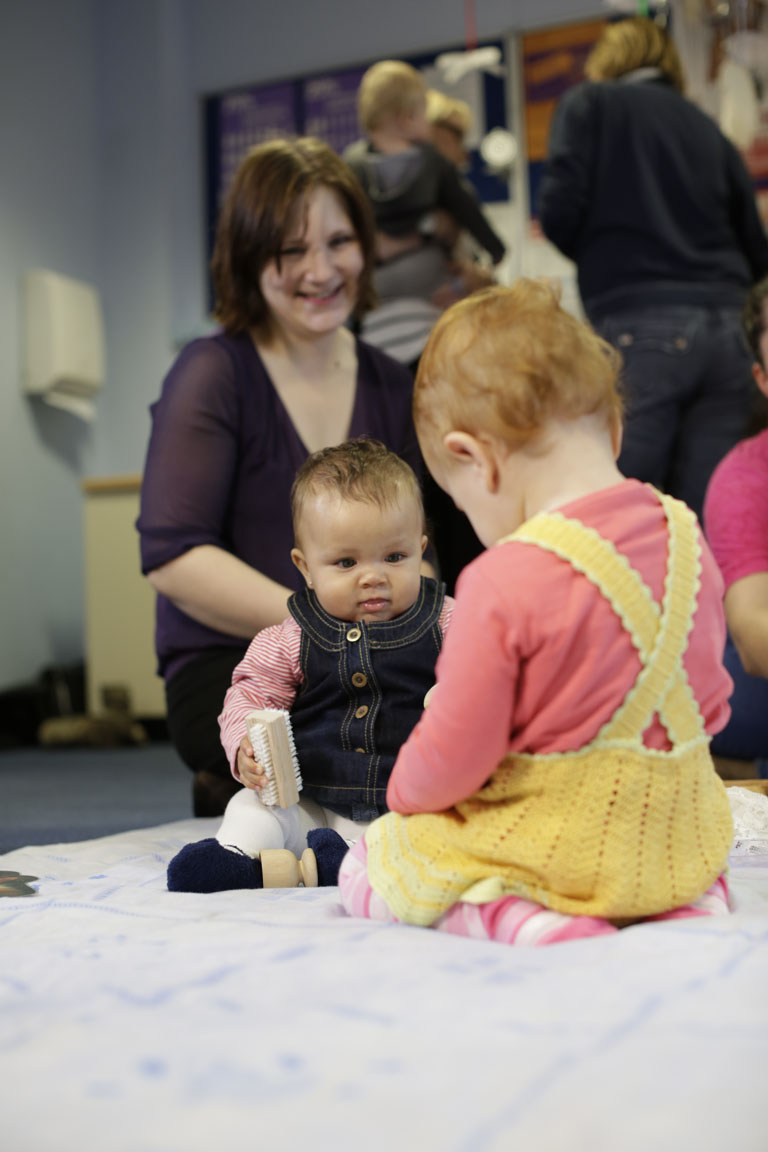
Side Quote Color:
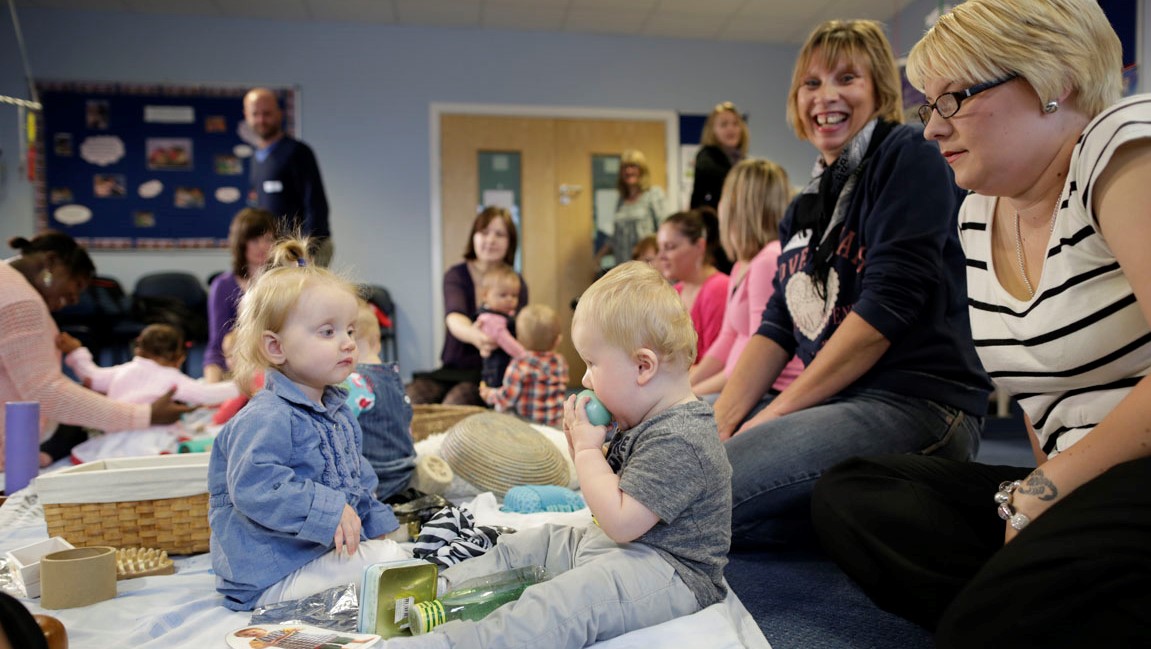
drop-ins or stay and plays
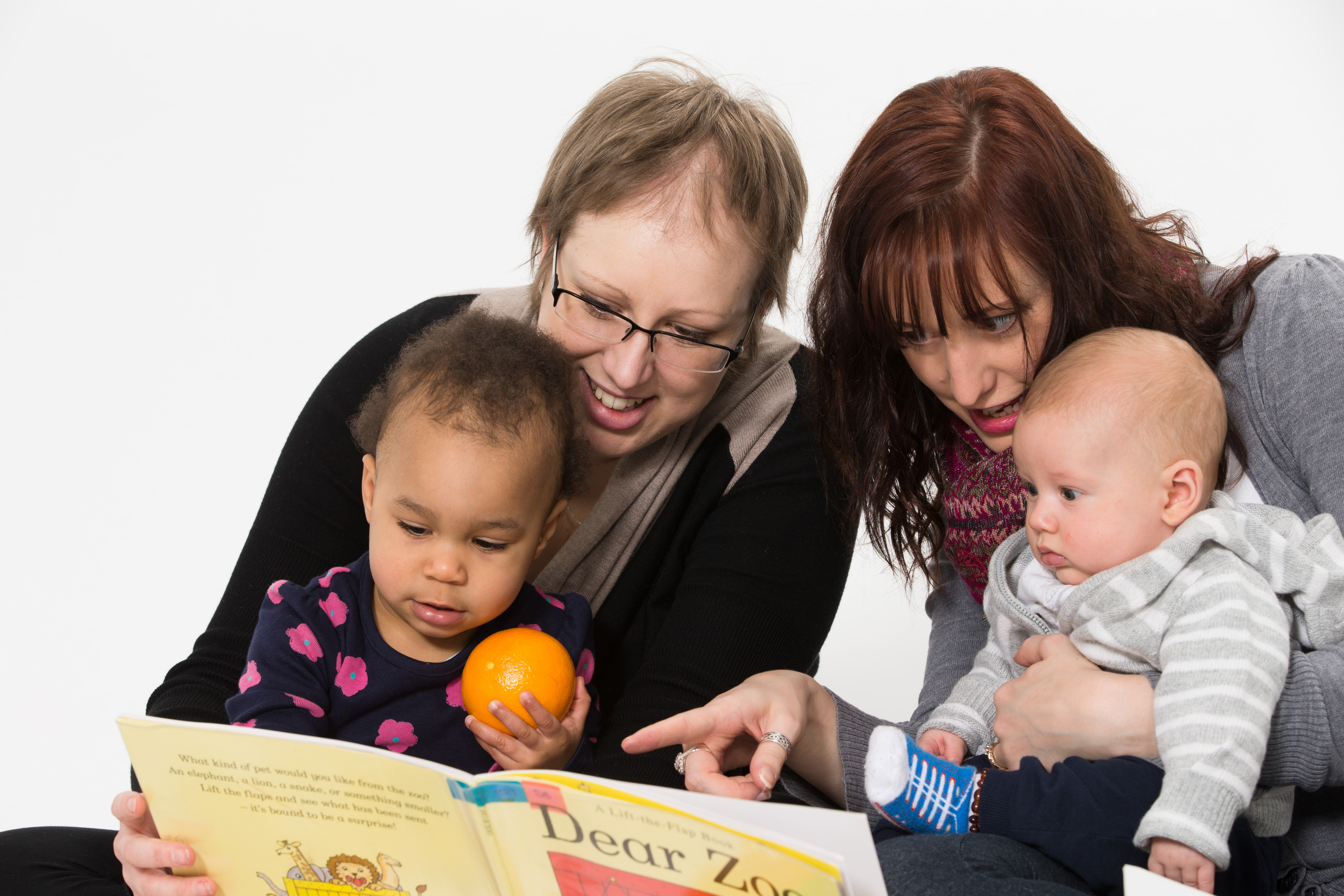 Drop-in sessions, such as 'Stay and Play' or 'Parents and Toddlers', are a great way for families to meet each other and have a change of scene and activities. They are more flexible than a group - there is no expectation that parents/carers attend every week or get there for the start time. They can provide a relaxing way for mums, dads and carers to chat together, while their children play with other children and toys, as well as joining in some of the activities with their child, with practitioners and parents sharing information about how it helps children's development.
Drop-in sessions, such as 'Stay and Play' or 'Parents and Toddlers', are a great way for families to meet each other and have a change of scene and activities. They are more flexible than a group - there is no expectation that parents/carers attend every week or get there for the start time. They can provide a relaxing way for mums, dads and carers to chat together, while their children play with other children and toys, as well as joining in some of the activities with their child, with practitioners and parents sharing information about how it helps children's development.
Drop-in sessions also offer a great opportunity to share ideas with parents and carers in bite-size chunks, about how they can support their children’s learning through everyday activities, singing, stories and play. Peep can be used in new or existing drop-ins, or run in places where families already go, such as a local shopping centre, library or child health clinic, as well as in Family Centres or Hubs, Children’s Centres or early years settings. They can also act as a stepping stone for families to go on to attend a Peep group.
Through attending Peep drop-in sessions, dads, mums and carers are supported to enhance their understanding about:
- how adults can use the ORIM framework (Opportunities, Recognition, Interaction, Modelling) to support babies’ and young children’s learning
- the importance of developing conversation, of talking and listening to babies and young children, and how adults can help
- how to provide play opportunities which help babies’ and young children’s learning
- how positive relationships help babies and young children feel good about themselves and want to learn
- using numbers in everyday situations with babies and young children
- how babies and young children make sense of their world through exploring and making choices
- how the whole family can help babies’ and young children’s developing reading and writing skills through play and everyday activity together
- how to share books, stories, rhymes and songs with babies and young children.
Stay and Play session example - early maths
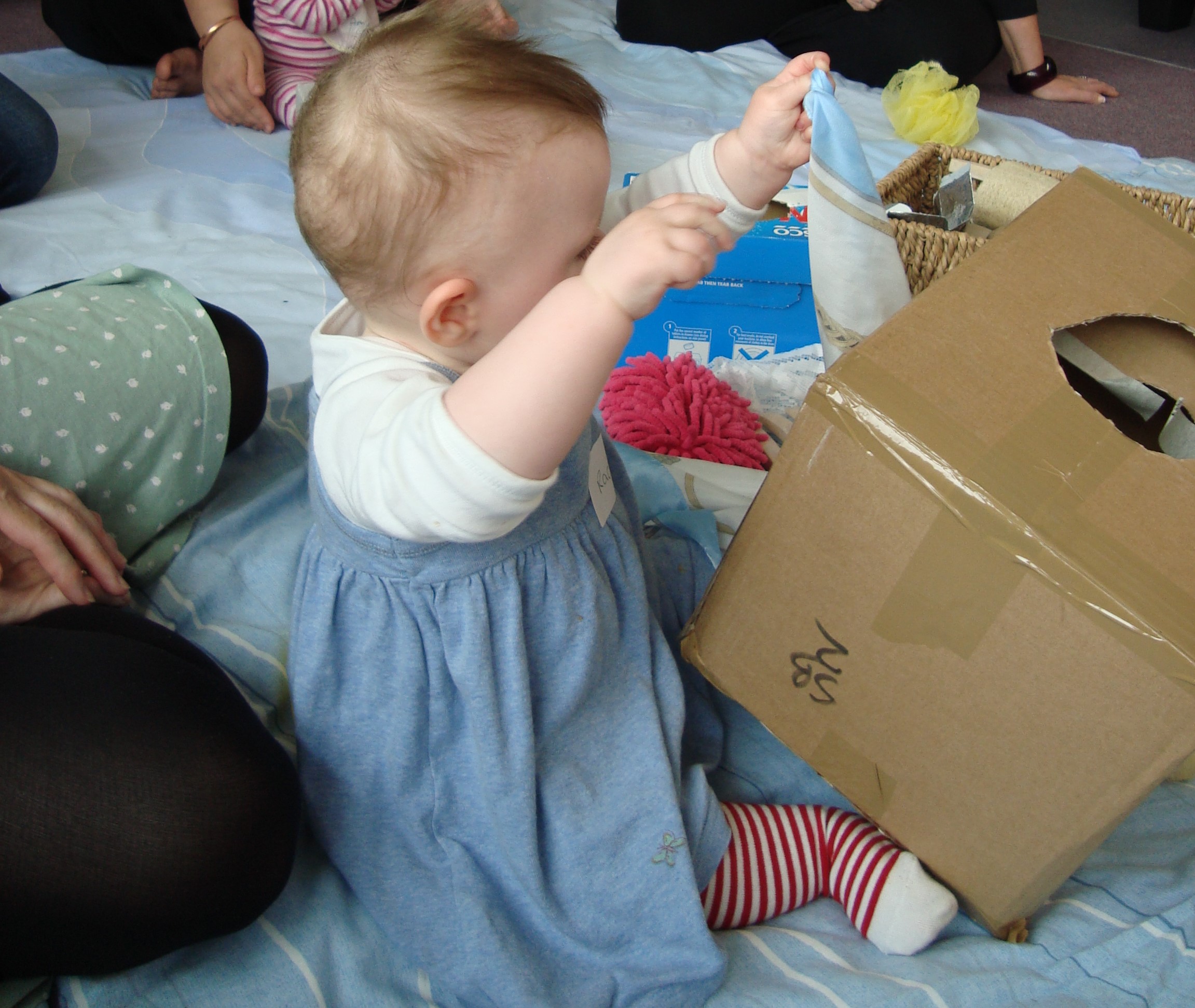 activity on the floor: posting things into a box
activity on the floor: posting things into a box
Families are encouraged to post items (e.g. socks, toy cars, pegs) into a posting box (a cardboard box with holes cut in the top and sides) and find them again when the lid is lifted.
Sharing a key idea: The practitioner talks with the parents/carers about matching things into pairs and counting 1, 2, as they are posted in the box. Counting an object in each hand is helpful for very young children.
activity at the table: feeding porridge to the three bears
Families are encouraged to feed the small, medium and large sized bears (made from shoe boxes), thinking about which size bowl and spoon (small, medium or large) each bear should have.
Sharing a key idea: Chat about how adults can help their children’s understanding of size, by talking about different sizes and pointing them out in everyday life.
sharing messages
As well as conversations, Peep practitioners also share these messages with parents through the use of short signs next to each activity, handouts, and cued modelling (explaining why and how they are doing something, as they are doing it). Peep Stay and Play sessions also have a singing and story time, so a relevant story (e.g. Goldilocks and the three bears) and songs (e.g. 5 little ducks went swimming one day) can link to the activities.
Feature box colour:
Side Quote Color:
outreach or home visits
A Peep session with an individual family can happen anywhere and at any time, either virtually /online or face-to-face.
Home visits
Peep home visits tend to happen when a family has a new baby or moves into the area, or when their child is due to start attending an early years setting or school. Some Peep-trained practitioners focus their visit on introducing the family to the Peep programme, while others incorporate Peep into their usual health, nursery or family support visit.
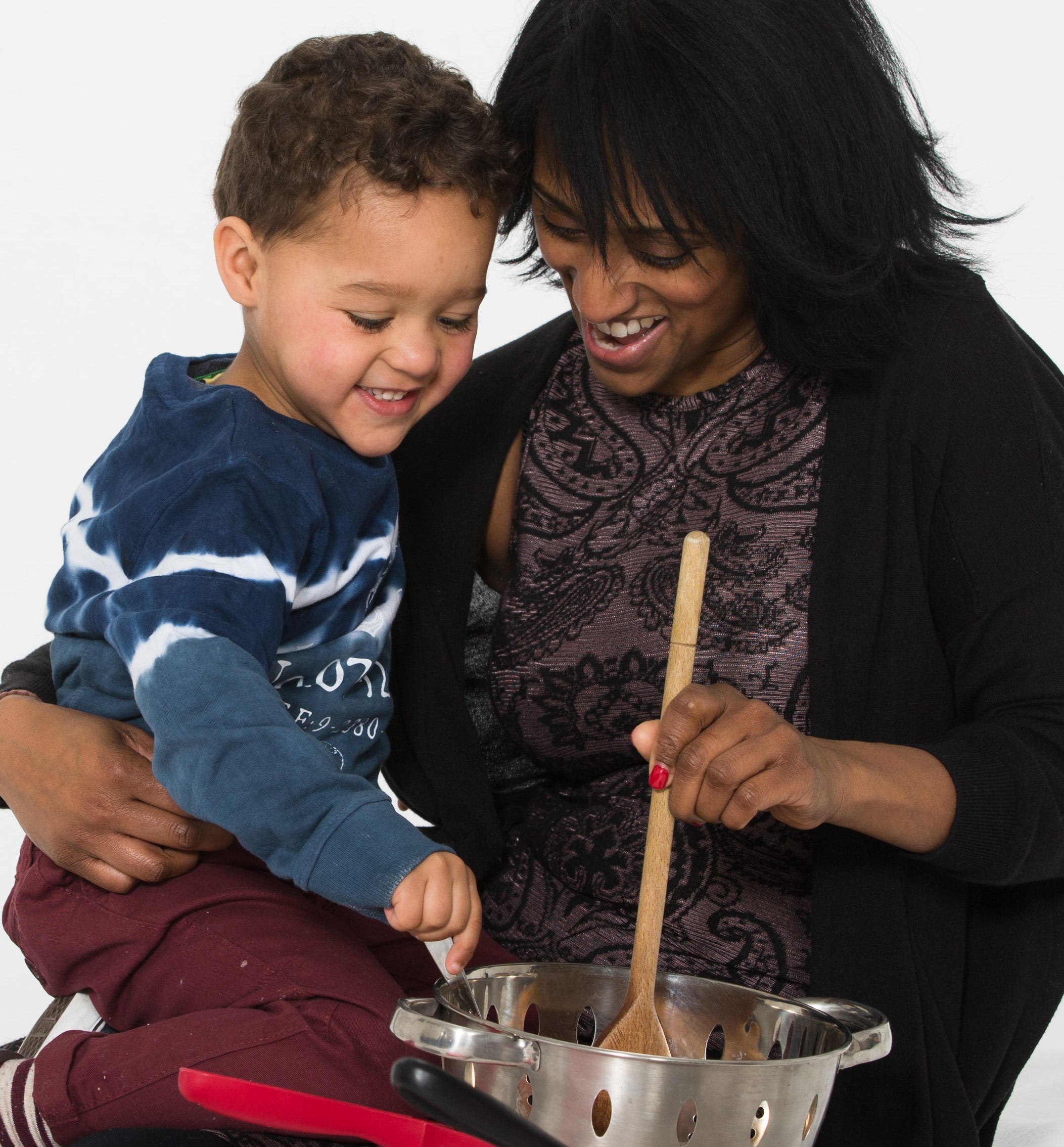 Visits aim to:
Visits aim to:
- start getting to know the family
- provide information about Peep and other local groups or services
- discuss and model a simple activity and book-share, involving everyone
- offer follow-up contact, or put the family in touch with other relevant services.
A few resources might be offered to the family, such as:
- leaflets about local services - including times, locations and contact details for Peep and other local groups
- Learning Together leaflets with information and ideas about aspects of child development that were discussed (e.g. 'Sharing books with babies', or 'Mark making' for toddlers)
- a picture book or a homemade book (made during the visit)
On-going outreach
Sometimes a practitioner and parent agree that the family would benefit from a few 1:1 Peep sessions, around parent-child interaction and supporting the child's learning and development. The practitioner and parent/carer agree on the focus of the sessions, based on the family’s needs and interests. The practitioner can use relevant Learning Together topics to plan future visits. Families often go on to attend Peep and/or other local groups or stay and plays, as well as gaining confidence and ideas for supporting their children’s learning in day-to-day life.
Feature box colour:
‘Having a visit at home helped me come along to a group, made it personal’
Feedback from a mother with two children aged 4 and 1 years old, whose husband (their father) was in jail. The mother cannot speak English well, she was isolated and depressed, and mostly, she said, she spent time with her children without interaction and play. She had four 1:1 Peep sessions at home.
‘This Peep home programme changed my life. I felt I was somewhere lost and this gave me support to trust myself and each week I learnt new games and ideas and slowly I started learning to believe I and my situation could change. Now I am beginning to understand my children. I did not know how language develops, reading stories, singing poems and just talking could make a big difference in our lives. Dual language books like ‘Little Beaver and the Echo' made a huge impact in my isolated life. Peep songbook and CD also reduced my loneliness. I did not know that music and play could play such a positive role in your soul. Making playdough, playing with treasure basket objects and drawing on paper, going out with my children gave lots of happiness to my children and learning to me. I listen to my children’s voices now, and my own too. I would like to learn the English language as well as driving, for me and for my children's mobilisation.’
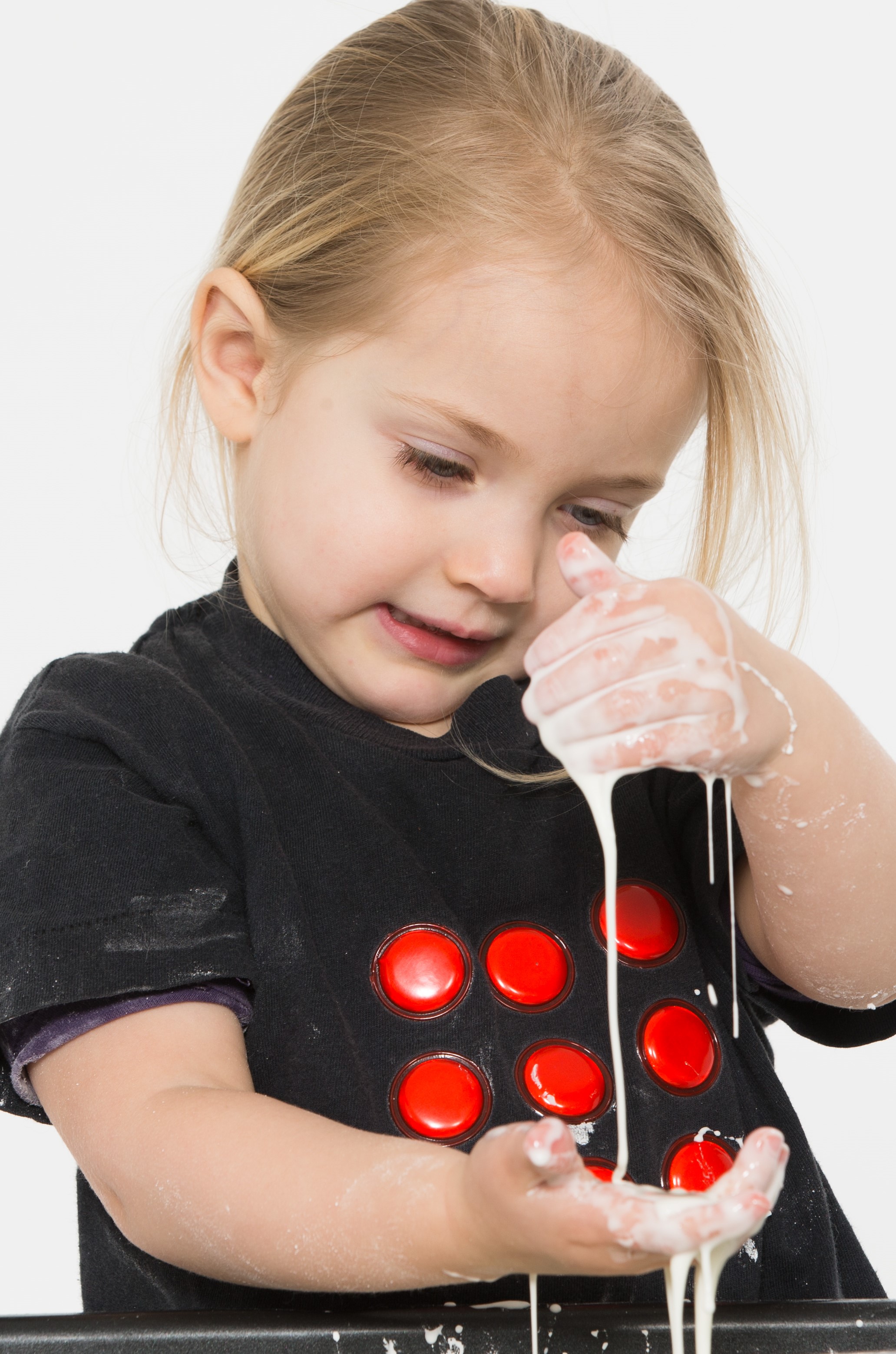
Side Quote Color:
ways of using peep - overview
Peep sessions are designed to be delivered flexibly by Peep-LTP-trained practitioners, to meet local needs. The examples below illustrate some of the different formats for delivering Peep - such as 1-to-1, in drop-in sessions or in group sessions - face-to-face or online, indoors or outdoors. Sessions can be universal (open to all families in the area) or targeted, focusing on parents, carers and children with a particular need or interest. Peep delivery happens in family centres, children's centres, family hubs, schools, nurseries and pre-schools, health centres, families' homes, drop-in sessions, libraries, swimming pools, outdoors - wherever families are!
Peep delivery formats:
- Outreach/ 1-to-1/ in the home - one or several sessions. Home visits can explore how parents and carers enhance their child’s early learning at home, and share information with families about local Peep sessions and other groups and services.
- Drop-in sessions might be occasional 'pop-up' sessions, or a regular Stay and Play session. They enable families to get a taster of the Peep programme, and to drop in when they can. As the sessions are open access, they can happen anywhere that families go, including shopping centres or health centres.
- Peep group sessions are generally run weekly for parents and carers to attend with their young children. The number of sessions in a course can vary to suit local needs.
Parent case studies
Stories from individual parents, including those who have gone on to further training or work through Peep.
- Parent to classroom assistant: Dumfries & Galloway - "I absolutely love my job and wish that I had made the move sooner but without going to the Peep group I would never have been confident enough to do it!"
- Parent and baby: Birkenhead - the benefits both for her baby's development and the supportive relationships within the group, in mum's own words
- From Peep parent to Peep leader or Childcare and Development worker: via the Peep Progression Pathway (parent accreditation) - Midlothian
Multi-agency case studies
Local/health authority departments and voluntary sectors organisations have found that using Peep as a common approach is an effective way to engage families:
- Early Help: Nottingham
- Intergenerational: Aberdeen
- Inter-generational: Edinburgh
- Children's centre-led: Liverpool
- Early Years-led: Benalla, Australia
- Education-led: Dundee
- Health/ Community learning and development-led: Edinburgh
- Family support-led: Galway
- Education psychology-led: Stirling
- Peeple Centre-led: Oxford
Health case studies
Peep delivered either in health centres, by health staff or with a health focus:
- Antenatal Peep: Highland
- Mealtimes: Wick
- Outdoor Peep: Aberdeen
- Child health clinics: Oxford
- Health centres: Moray
- Healthy Peep: Midlothian
- Water Peep: Newcastle
Education case studies
Peep in pre-schools, nurseries, transition, schools, colleges and adult learning
- Transition Peep - overview
- Developing the young workforce: Moray
- Childcare students: Lancashire
- Early Learning and Childcare students (virtual Peep): Ayrshire College
- Thoughts from an educational psychologist - 20 years of Peep
Employability case studies
Peep supports children's learning through adult (parent and carer) learning; this can be taken a step further through the Peep Progression Pathway (credit-rated units by SQA), work with students in colleges and/or Peep parents becoming practitioners.
Social Care case studies
A focus on working with parents whose children are looked after, foster carers, kinship carers, etc.
Prison case studies
Helping to maintain family relationships, and engage parents in their children's learning and play while they are in prison.
Feature box colour:
find out more or book training
tel 01865 397 970
training@peeple.org.uk
> information briefing
> in-house training
> training courses
> sign up to our e-newsletter
Feedback from Peep parents and carers – changes they’ve noticed in their babies:
‘He is singing all the time. He is mad for any books.’
‘He’s developed so much since going to Peep. He points at things, he smiles a lot and gets to see other babies.’
‘She is watching new faces.’
‘His reactions with bubbles is so cute.’
‘My son loves treasure baskets and now we have one at home.’
‘She copies the other babies, wants to sit up and join in. She’s enjoying the blanket and bubbles, encouraged by other babies and the wonderful activities.’
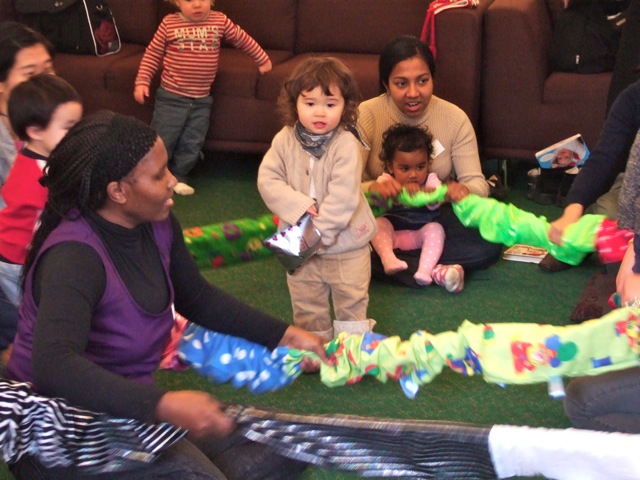
Side Quote Color:
Peep Progression Pathway - qualification units for parents and carers
The Peep Progression Pathway offers nationally recognised units to cover three qualification levels for parents and carers as learners. At each of these levels, learners can follow a unit covering:
- any of the five Peep learning strands - Personal, social and emotional development, Communication and language, Early literacy, Early maths, and Health and physical development, and/or
- any of the four developmental stages - Babies, Toddlers, Pre-schoolers or Early Childhood - of the Learning Together Programme.
Join our next free Pathway Information Session for practitioners and managers
to find out more about using the Peep Progression Pathway with your local families
Wed 18 September: 3.30 - 4.30pm
> Email us and we'll send you a Teams link for your calendar: pathway@peeple.org.uk
Benefits of the Pathway for parents and carers
The Peep Progression Pathway units formally recognise the learning which is already occurring within a Peep session. This includes playing, talking, sharing books and stories, and singing with young children, and using ORIM.
The credit-rated units are assessed entirely by portfolio. Through this portfolio learners recognise and build on everyday learning. They reflect on their child’s development and on their own role as their child's first educator. Parents/carers have treasured them, both as a reflection of their own learning and as a keepsake about their child.
Learners who participated in the Peep Progression Pathway found it useful in a range of ways:
Furthering their understanding of child development:
‘It’s good to really consider why you do things and how it benefits your child’ (Parent)
Enhancing parent confidence and relationship with their baby or child:
'The course allowed me to grow in confidence in being able to understand babies' needs and wants. The talk time and listening to others helps put your own experiences into perspective. I'm able to listen to my baby more now and decipher cries and wants - tired, bored, hungry, etc.’ (Parent)
'I gained useful skills through the Peep programme and pathway that will help me day-to-day when I’ve been released from prison. It gave me a better understanding of parenting and what can help my child.' (Parent in Inverness Prison)
As a stepping stone into formal learning...
‘We are finding that parents who do not feel confident to register as a learner recognise that their portfolio work is just as good as their peers and often have a change of heart and submit their portfolios for assessment. It’s increasing access to parents who would never consider participating in accredited learning’ (practitioner)
'At the end of our Peep group I had the opportunity to complete the Peep Progression Pathway course and to support the running of a Peep group. I then attended the Peep Learning Together Programme Training and this led to me applying for a post with Midlothian Council as a Peep Leader – I was successful! To have the confidence to make a complete change in career is a real achievement for me. The Peep Progression Pathway course and the Learning Together Programme helped me become a better parent by supporting my learning and understanding of what a child needs. I realised that I loved the learning and wanted to do more.'
... and employability
‘We’re seeing a number of parents in our area who are going through the accreditation with the hope of progressing on to co-deliver the groups as volunteers or bank staff where funding allows’ (practitioner)
For personal development...
‘I haven’t had to think critically for a while, so it’s been good to get back into it’ (Parent)
... and enjoyment
‘I've recommended it to all my friends. A very worthwhile and valuable experience’ (Parent)
‘Practitioners love that the Progression Pathway is sown throughout our existing Peep Learning Together Programme’ (Practitioner)
Parents and carers involved in an evaluation of the Peep Progression Pathway reported that they have:
- a greater understanding of their role in promoting their child’s development
- an increased confidence in supporting their child’s learning and development
- more knowledge and ideas for improving the home learning environment
- recognised improvements in their own personal learning and literacy skills
- enhanced aspirations – with many going on to further their own early years and child development study and work opportunities
The units have been credit-rated by the Scottish Qualifications Authority (SQA) at SCQF levels 3, 4 and 5 - equivalent to entry level 3, level 1 and 2 equivalent in the rest of the UK.
The Peep Progression Pathway - as its name suggests - often leads on to parents and carers taking further training or qualifications, or new career opportunities. You can read some of our case studies here:
- from Peep parents to Peep group leaders in Midlothian
- family learning and employability in Derby
- with Home-Start in Edinburgh
- with foster carers in Oxfordshire
- with inmates (and their partners) in HM Prison Inverness
- parent to classroom assistant in Dumfries & Galloway
Read more about:
> Peep Progression Pathway delivery for organisations - including how to become a Delivery Centre
peep progression pathway
> find out how you can offer qualification units for parents:
Thur 29 August 3.30pm - free info session
Feature box colour:
Feedback from a young mum: ‘I was very shy and didn’t want to come out. I had to get two buses to come to Peep. The qualification was a pull. It’s made me more confident, knowing what I am doing with my child’s development. I was nervous at first but really liked the two group leaders. It was not as hard as I had thought. I want to go back to college. I had a big gap in my CV so it enabled me to fill that and have something to speak about.’
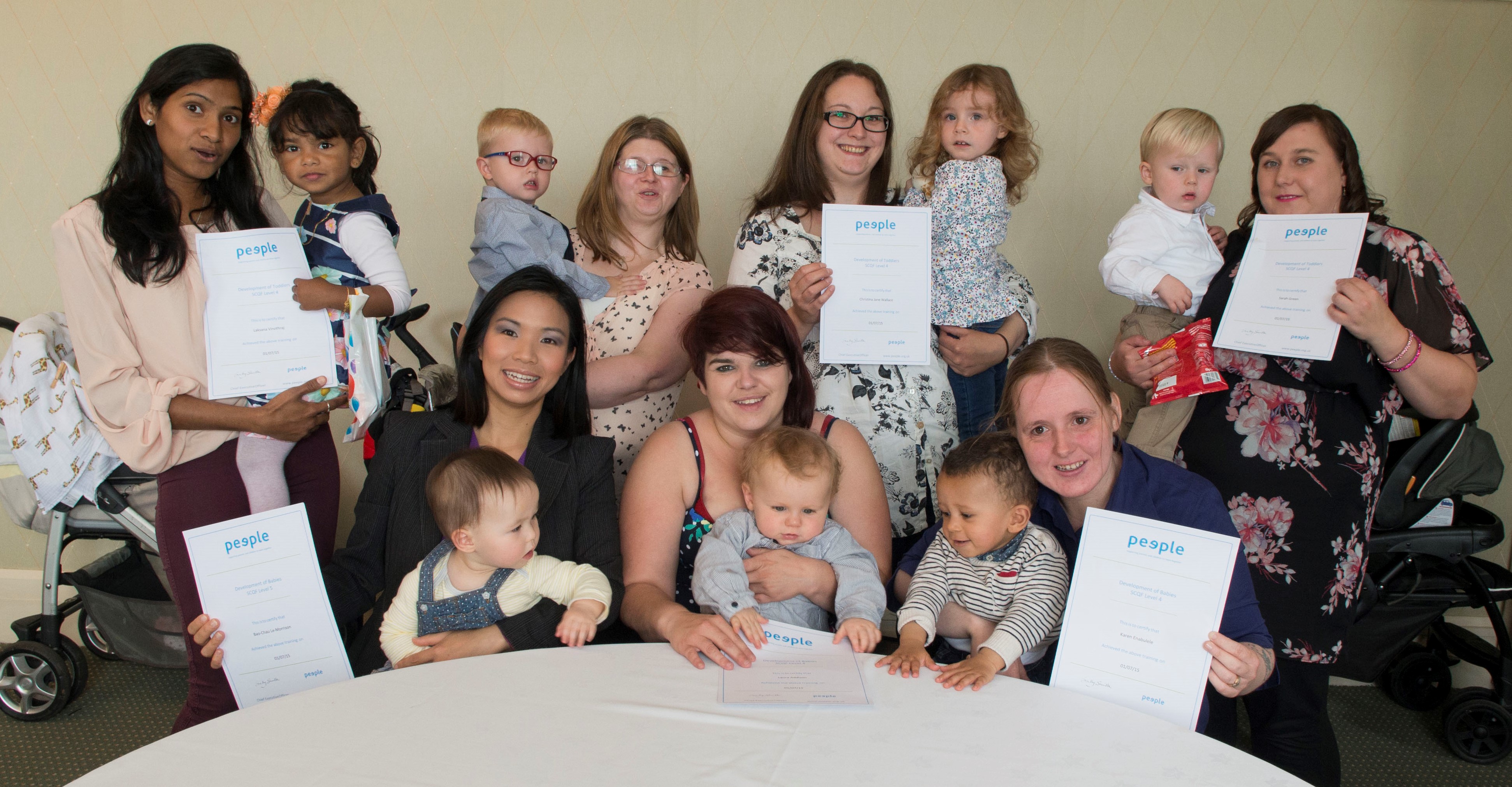
Side Quote Color:
programme content
The Peep Learning Together Programme (LTP) contains 74 Topics covering five strands of child development: personal, social and emotional development ~ communication and language ~ early literacy ~ early maths ~ health and physical development.
Each topic in the Programme contains key child development information along with delivery guidance, handouts for parents, and activities which help meet the topic aim(s). Each topic relates to one or more developmental stage: babies - toddlers - pre-school. The Programme is intentionally flexible - practitioners can use any topic from any strand or developmental stage, in any order, to meet the needs and interests of the families that you work with.
When practitioners attend our Peep LTP Training they are given online access to the whole Programme in our log-in Members Area - see examples below.
Overview programme maps
> Learning Together Programme Topic Aims Map - an overview showing the aim(s) and relevant age/ developmental stage(s) for each of the 74 topics
> Learning Together Programme Strand Map - one-page overview of the 5 strands and 74 child development topics.
Example of a learning together programme topic
Click the links below to see examples of the downloadable resources available to LTP-trained practitioners for one of the topics, Musical Interactions (for toddlers and/or pre-schoolers):
> Communication and Language strand - Musical Interactions topic [for practitioners' planning. LTP-trained practitioners can buy a hardcopy set of the 74 topics in our Learning Together Programme Folder if they prefer.]
> Session plan - Question talk time | Session plan - Message talk time | Session plan - Activity talk time [for practitioners - select one, and adapt if appropriate]
> Topic card [for practitioners - sharing the topic aim with parents and/or course planning]
> Topic handout [for parents/carers]
> Things to do at home handout - Ideas for songs that support language development [for parents/carers]
> Things to do at home handout - Fox in a box song sheet and props [for parents/carers]
> Peep Tip - how songs and rhymes support talking and listening [for parents/carers]
Trained practitioners can also access general support and resources on our login website, covering recruiting families, different types of delivery, adaptable posters, leaflets and certificates, etc.
5 strands of child development in the Learning Together Programme
Personal, Social and Emotional Development covers:
- the significance of bonding, secure attachment and positive relationships for promoting babies’ and young children’s learning and development
- developing self-esteem, confidence and positive dispositions for learning
- how babies and young children develop an awareness of their individuality and personal identity (sense of self)
- the importance of play (including schemas and treasure baskets) and the quality of the Home Learning Environment for supporting learning and development
- building resilience and self-regulation - tuning into and helping babies and children to manage their feelings
- understanding and managing children’s behaviour
- an introduction to ORIM (Opportunities, Recognition, Interaction and Modelling) for parents/carers.
Communication and Language covers:
- how babies communicate through body language, facial expression, eye contact and sounds
- the importance of early interactions with babies, for bonding and attachment
- how babies’ speech and language develops through watching, listening, making sense of sounds and beginning to use their own voice
- the importance of everyday interactions (speaking and listening, especially in the mother tongue) in developing young children's speech and language, thinking skills, problem-solving...
- the significance of musical interactions, songs and rhymes for supporting early learning and development
- the importance of play in developing communication and language skills
- the benefits and challenges of engaging with technology
- exploring the language of maths through play and everyday situations.
Early Literacy covers:
- the benefits of sharing books and stories with babies and children
- the significance of sharing books and stories and making home-made books, in promoting reading and writing skills
- the importance of books and stories for developing children’s understanding and awareness of the world around them
- the use of storytelling and exploring stories through play for developing children’s early literacy skills and enhancing their imagination
- how an awareness of environmental print (logos, signs, labels etc in the home, and out and about) can support early literacy skills
- exploring the sounds in words through songs, rhymes, poems, stories and everyday conversations
- the importance of mark making and play for developing early writing skills
- the significance of providing everyday opportunities to explore and experience reading and writing in meaningful contexts (e.g. shopping lists, birthday cards)
- exploring the use of technology in early literacy development.
Early Maths covers:
- how babies and young children learn about numbers and other mathematical concepts through talking, playing and having fun as part of everyday life
- the importance of adults modelling a positive attitude toward exploring early maths
- how numbers are used in different ways in different contexts
- the importance of sharing books, toys, games, songs and rhymes for supporting children’s understanding of numbers and counting
- the significance of routines and things with a working order for helping to develop a sense of order
- exploring numbers, shapes, patterns, sorting, matching and measuring.
Health and Physical Development covers:
- the importance of food for supporting growth, development and health
- how babies and young children develop food preferences
- the role of mealtimes, as well as buying, preparing, cooking and sharing food in supporting early learning and development
- the benefits of exploring nature for increasing well-being, learning to manage risks, and supporting early learning and development
- physical development - including the significance of music, songs and rhymes, as well as exploring language and movement to support conceptual understanding
- brain development
- sensory development – including sight, smell, touch, sound and taste, as well as spatial awareness, balance and co-ordination.
Feature box colour:

find out more or book training
tel 01865 397 970
training@peeple.org.uk
> training courses
> dates & booking
> sign up to our e-newsletter
Comments from Peep parents and carers:
‘I’ve noticed much more how my baby is communicating with me, and the different sounds he’s making’
‘It hadn’t occurred to me to listen to him and give him space to talk’
‘We give our children more time to concentrate on listening to things around them’
‘In the past I would not so much talk or read to my daughter because I thought she was too young to understand, but after seeing her response to everything at Peep it has improved my help towards her talking and listening.'
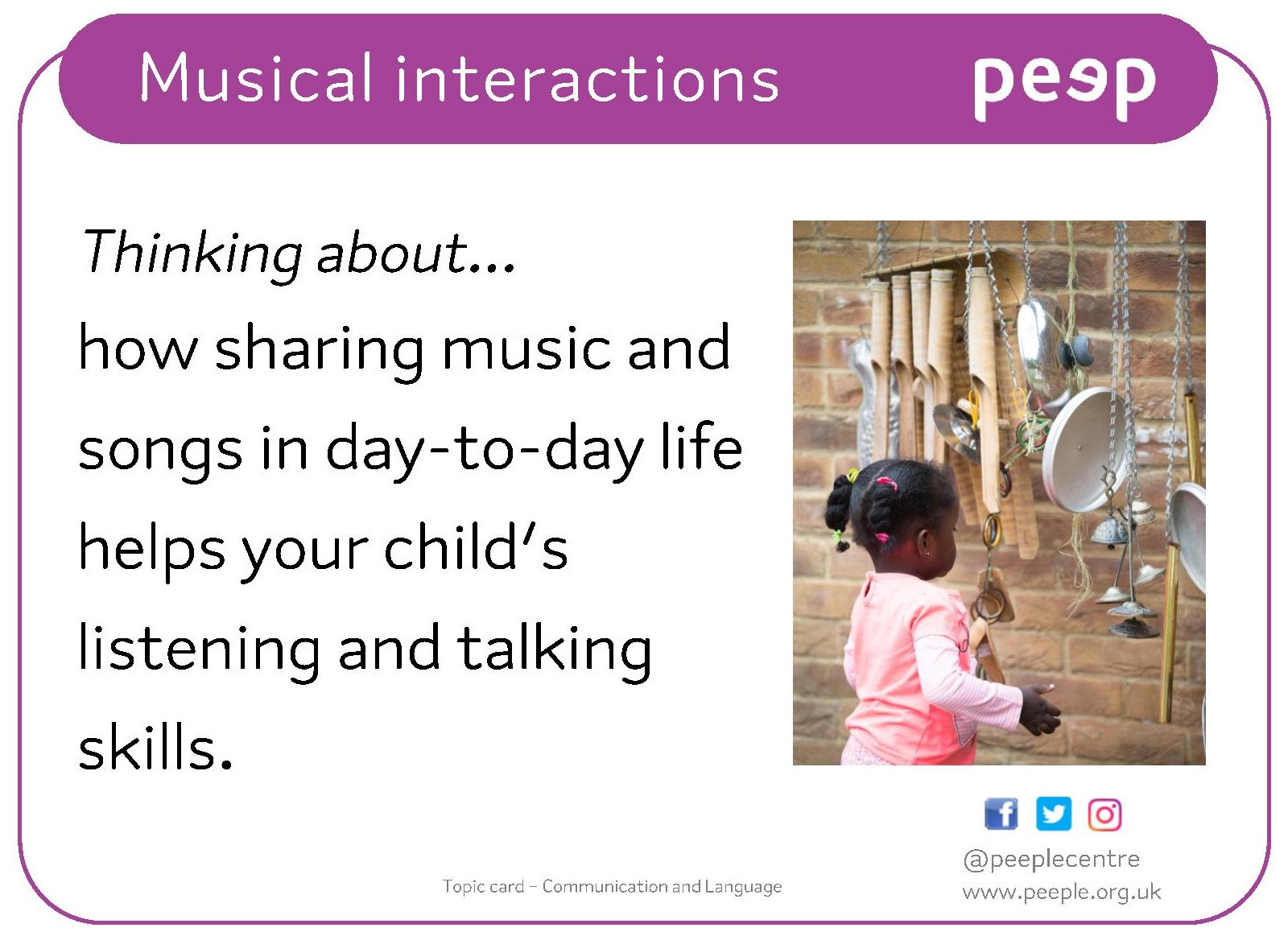
Side Quote Color:
orim
ORIM stands for Opportunities, Recognition, Interaction and Modelling. These are four practical ways that parents and carers support their children’s learning and development.
Opportunities: Parents and carers make the experiences of day-to-day life into learning opportunities through the ways that they interact with their children: listening, talking, singing, playing (indoors and outside), encouraging, and giving them time and attention. Parents also give children opportunities to explore and experiment with everyday objects, such as mark-making with a paintbrush and water or chalk on paving stones, or using an empty box to make a toy farm, dolls house, boat, space rocket...
Recognition: When parents and carers show that they recognise and value their children’s efforts and achievements - and the children themselves, just for who they are – it contributes to children’s understanding and belief in themselves as learners. Recognition can be simple and low-key (e.g. a quiet word, smile, or high-five), or more obvious praise and encouragement, or putting their painting on the fridge or making up a story in which the child appears as a character. Parents and carers also recognise what counts as progress for their own child (e.g. being able to balance for longer on a log, or to join in with a familiar song).
Interaction: Parents and carers support their children’s development by interacting with them in many ways, such as:
- listening and talking with them about what they are doing and or how they are feeling
- involving them in everyday tasks such as cooking or cleaning
- explaining or demonstrating how to do something
- offering reassurance or encouragement as a baby explores (without getting too involved)
- helping a toddler to manage their frustration
- watching television with their child and chatting about what they are seeing.
Modelling: Babies and young children learn from watching and listening to those around them. The most powerful models for them are those that they spend the most time with and who they love the best – their parents and carers. Through these models, babies and young children absorb behaviours, attitudes towards learning and how to interact with others. They also learn more specific things, such as how literacy and maths are used as part of day-to-day life, such as writing a shopping list or paying for the shopping.
This ORIM framework was developed by Professors Peter Hannon and Cathy Nutbrown at the University of Sheffield. In their work with families, they noticed that all parents and carers support their children's learning by naturally providing Opportunities, Recognition, Interaction and a Model (ORIM for short). However, when we (as practitioners or parents) understand how ORIM helps learning, we're more likely to think about and do them more often in everyday life - which helps children's learning even more. And the big difference is NOT how well we ourselves got on at school - but what we do with our children: talking, playing, singing, sharing books and stories, and keeping ORIM in mind.
ORIM is threaded through Peep programmes - it helps practitioners to see and value what parents and carers are already doing to support children's learning. As parents and practitioners share ideas, they improve the quality of the home learning environment, which research has shown to be so important for children’s later outcomes.
how orim helps families
The more that we as parents and carers know about how children learn and develop, the easier it becomes to:
- understand how to make everyday events into learning opportunities
- recognise what counts as progress for our own child, and understand how to scaffold their learning (support them with new things, while they learn to do it themselves)
- recognise and value all the little developmental steps on the way to the ‘big’ goals of learning such as talking, reading and writing
- recognise and celebrate our child just for being themselves
- understand the different ways that we can helpfully interact with our child
- appreciate our role as a model for our child/ren.
> Download our short topic handout: An Introduction to ORIM or our Urdu version: An Introduction to ORIM in Urdu (for screen) or An Introduction to ORIM in Urdu (to print).
To find out more about parents and children learning together in everyday life: ask about Peep sessions at your local children's/ family centre or early years setting, visit our facebook page or attend one of our practitioner training courses.
Feature box colour:
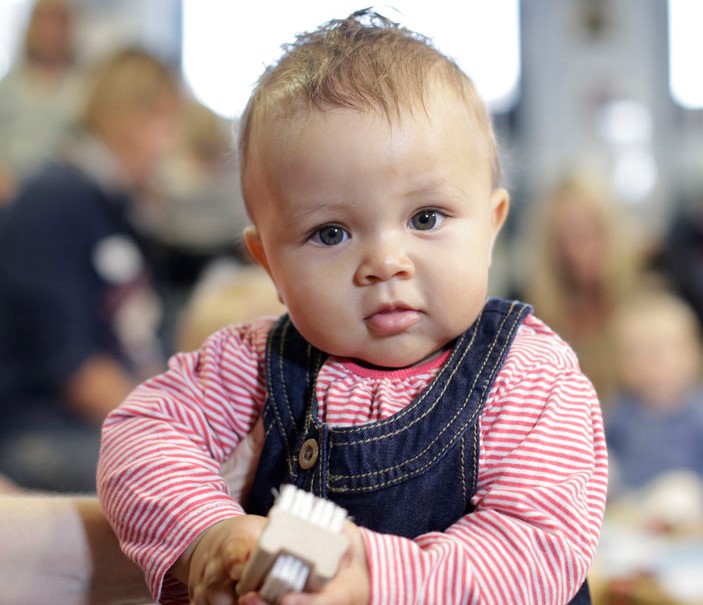
find out more or book training
tel 01865 397 970
training@peeple.org.uk
> dates & booking
> in-house training
> training courses
> sign up to our e-newsletter
Parent feedback in a Peep group, discussing the question: Has anything that we’ve done or talked about in this group made any difference to the ways that you encourage your child’s confidence?
‘I notice the little things they do and praise them more’
‘I allow her to experiment more – not worrying too much’
‘Being more positive and encouraging, giving him more opportunities and more recognition’
‘Encouraging my children when they have achieved something by themselves and seeing their excitement when they have achieved something’
‘Peep gives you the chance to talk and reflect on everything. It makes you take the time to talk and listen more when sometimes we feel very busy.’
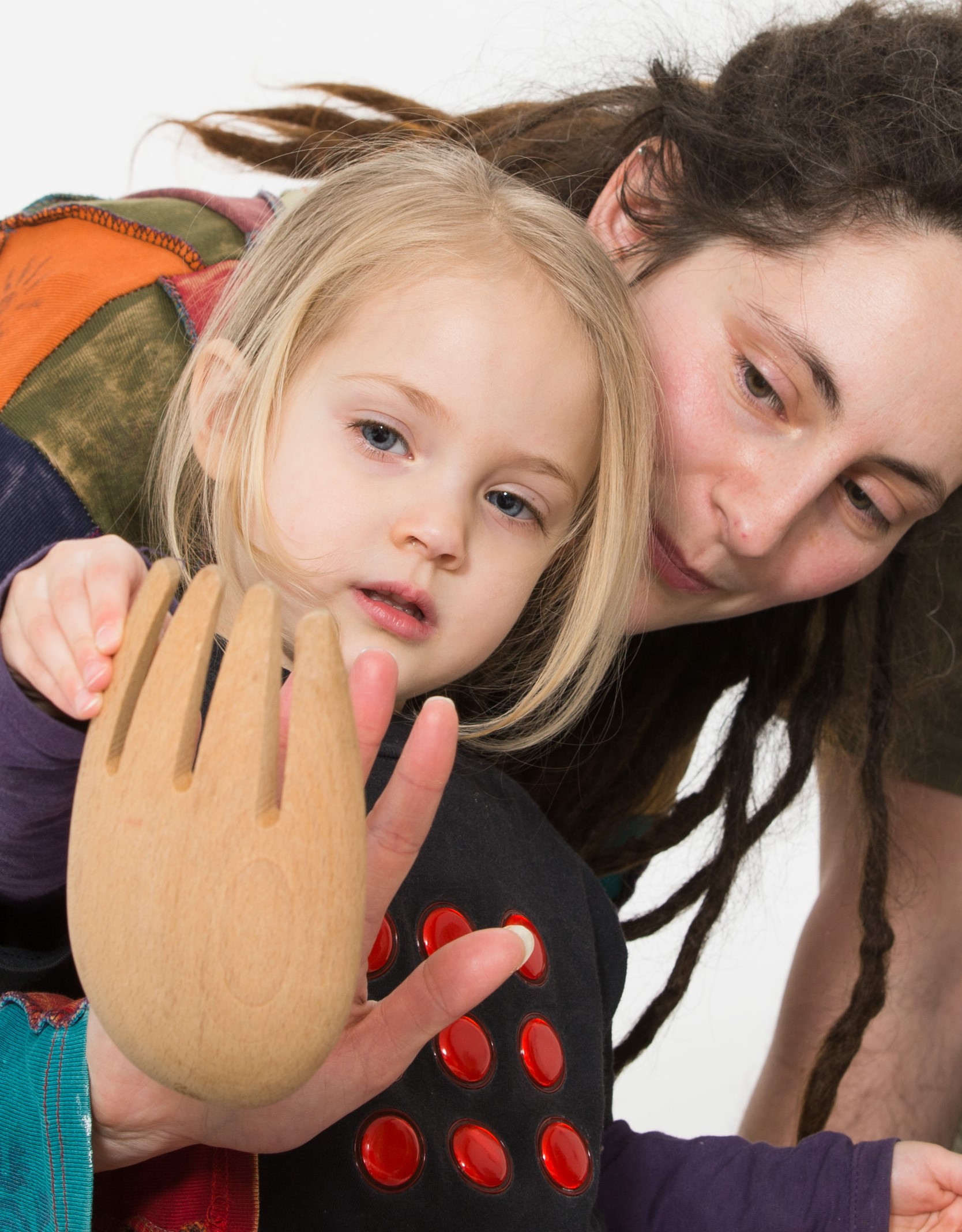
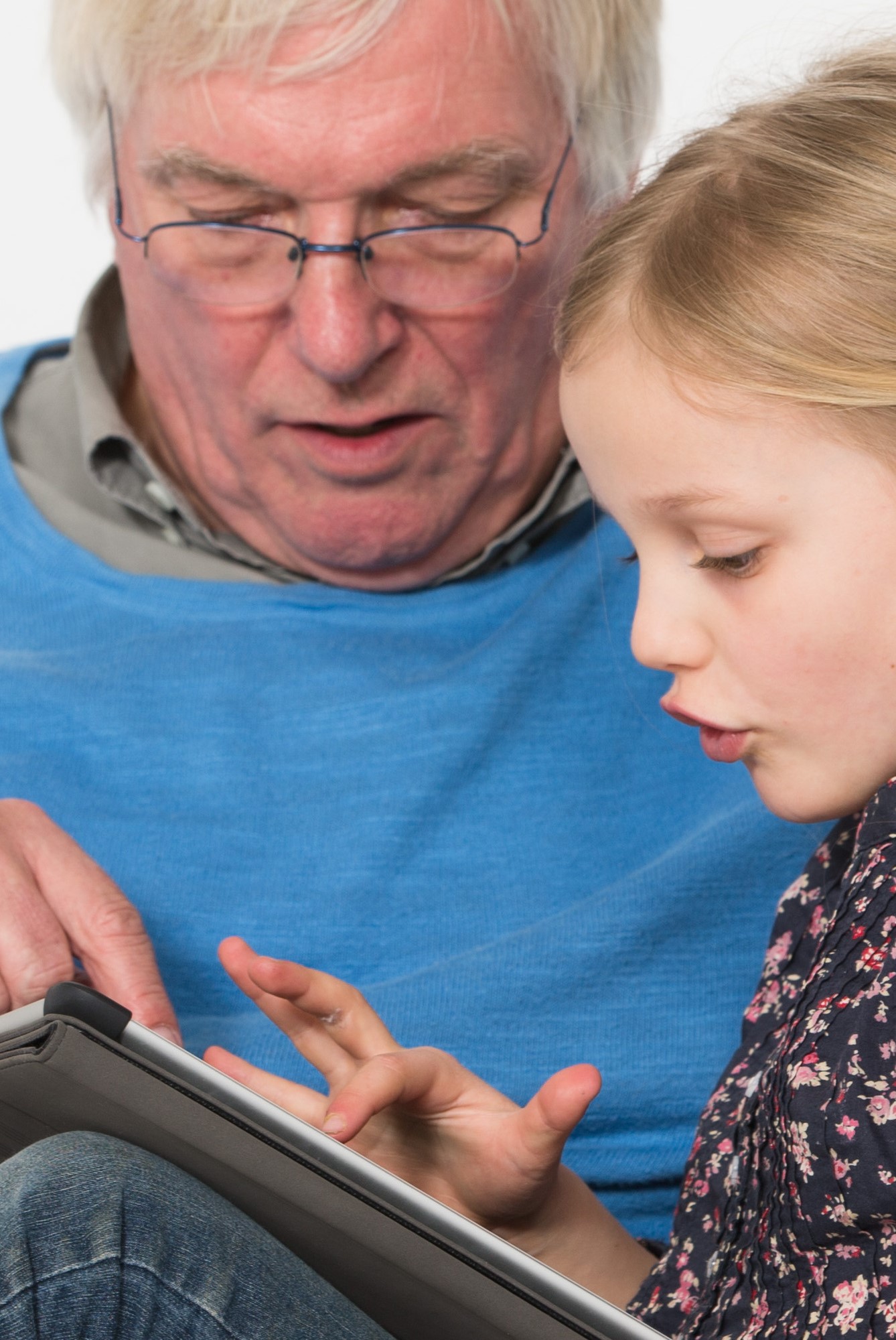
Side Quote Color:
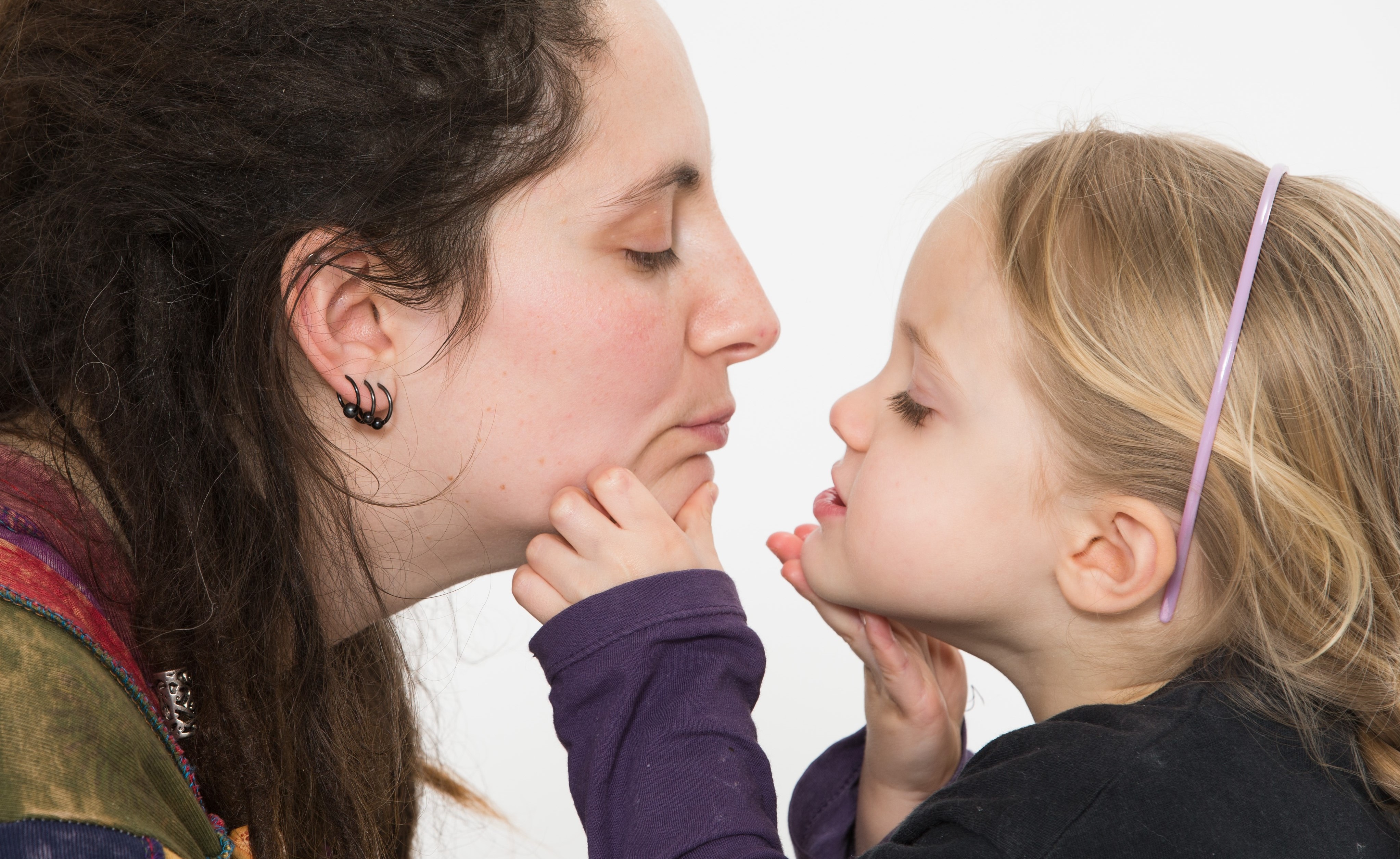
peeple principles
All Peep Programme delivery is underpinned by our principles:
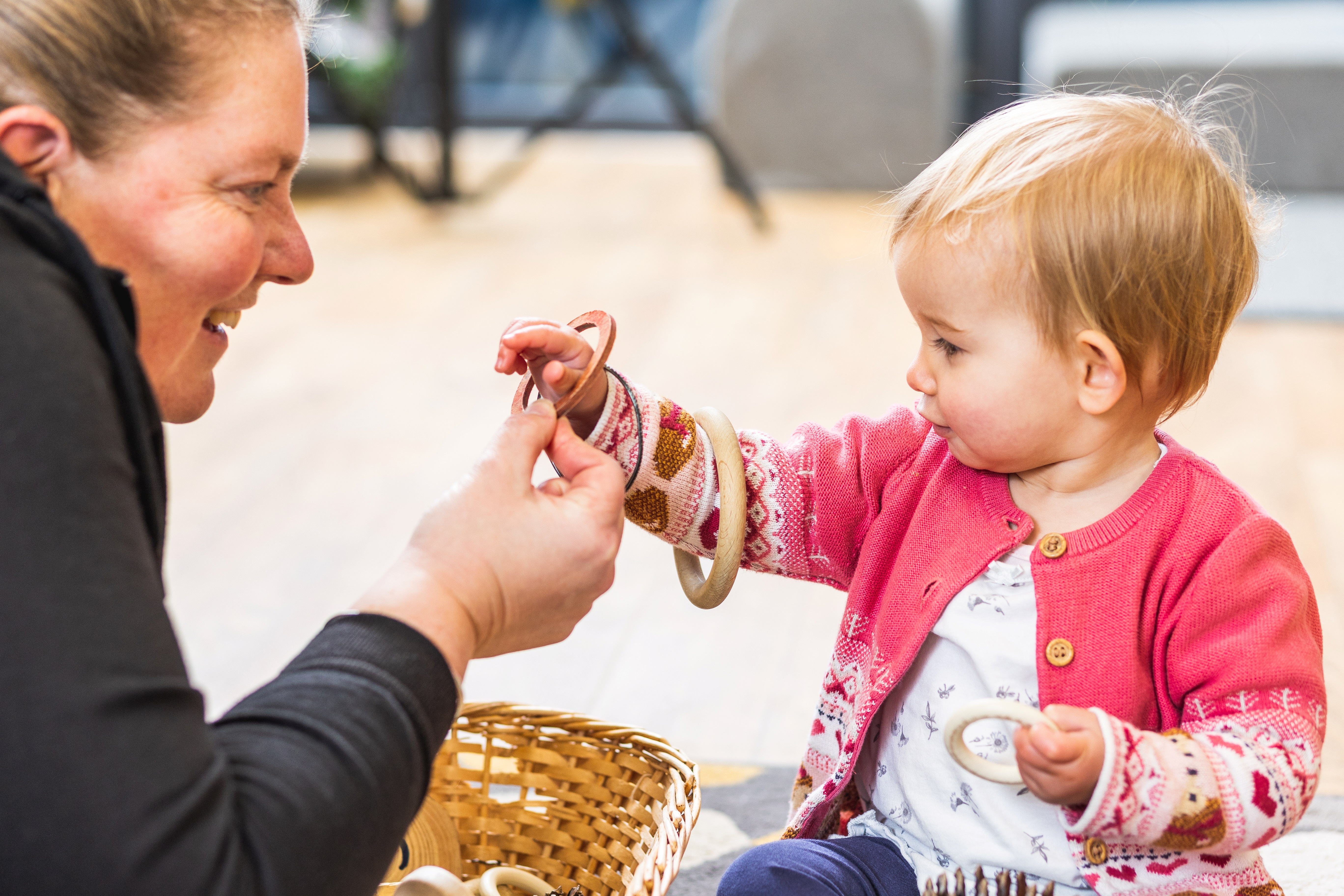 We believe that relationships are at the heart of learning
We believe that relationships are at the heart of learning
We believe in the potential of every parent, every carer and every child
We recognise parents and carers for what they already do, and help them to do more
We believe that lives can be transformed by building on everyday learning experiences
We recognise the importance of reflecting on the world through the eyes of others

The Peeple principles complement the United Nations Convention on the Rights of the Child (UNCRC). This covers all aspects of a child’s life and sets out the civil, political, economic, social and cultural rights that all children everywhere are entitled to. It explains how adults and governments must work together to make sure all children can enjoy all their rights, whatever their ethnicity, gender, religion, language, abilities or any other status. There are four general principles covering non-discrimination, the best interests of the child, the right to life survival and development, and the right to be heard. The Convention has been signed by all United Nations member states (other than the USA). Respecting and teaching children about their rights ties in with the broader support provided by parents and carers every day: listening, talking, playing, reading and spending time with children, helping them to develop empathy, understanding and interest in the people and the world around them.
our principles
Feature box colour:
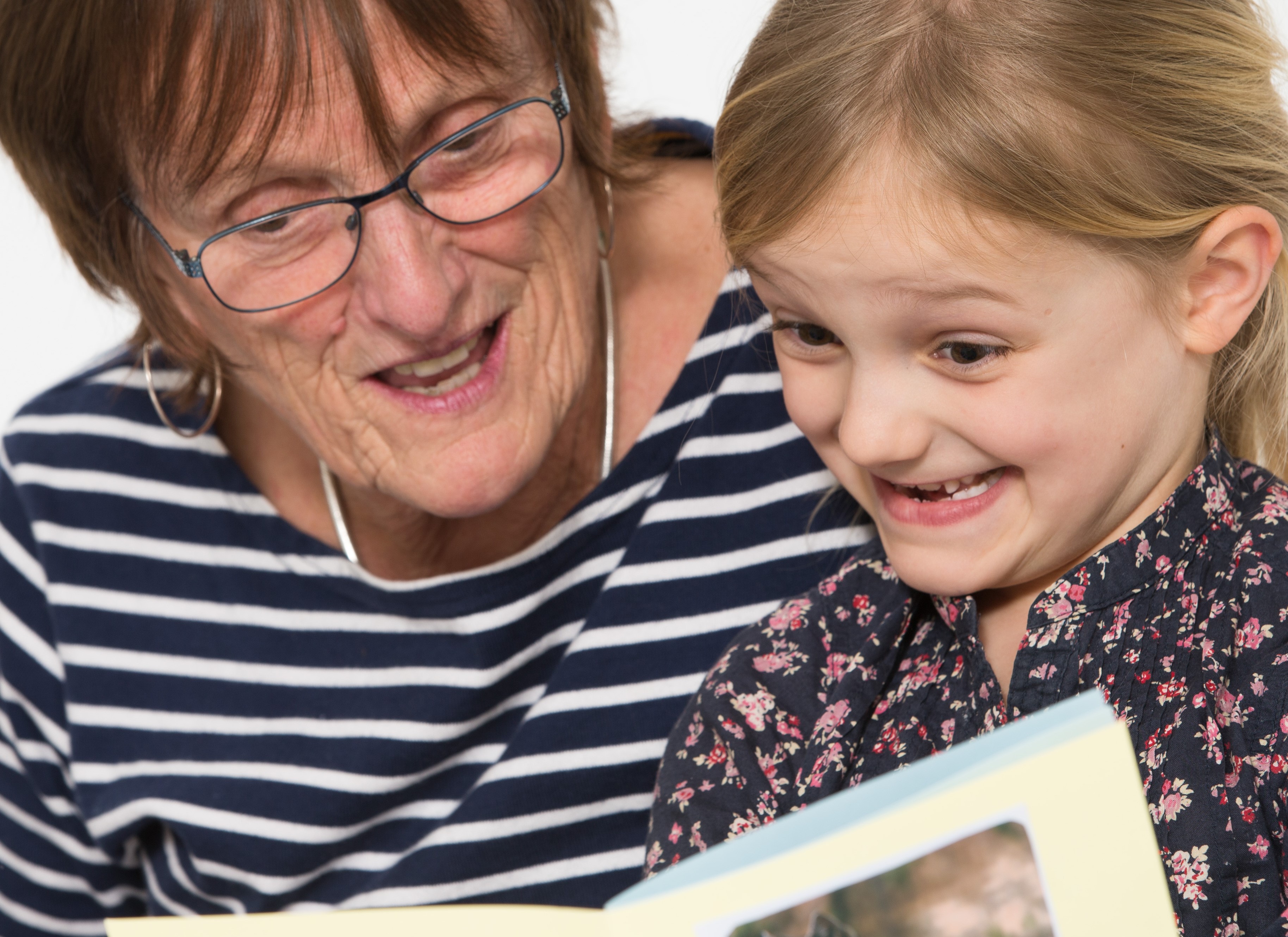
Has Peep made a difference to you or your baby?
‘Ooooh yes!!! He turns his own books and points at pictures and words.’
‘I’m doing more things with my child.’
'It’s helped my confidence and helped my baby’s confidence with other babies and people. He’s enjoying the company and the chance to copy and be encouraged by the other babies.’
Side Quote Color:
peep learning together programme
The Peep Learning Together Programme helps parents, carers and practitioners make the most of the learning opportunities in everyday life, supporting their babies' and young children's learning through play.
Watch our 'What is Peep?' video to find out more about Peep groups, and to hear from Peep practitioners and families:
Research has found that the main influences on young children’s outcomes are the quality of the relationship with their parents and carers, and what they do with their family, from birth (known as the Home Learning Environment). Early intervention makes a real difference. Our evidence-based Peep Learning Together Programme contributes to this, by helping:
- parents and carers to improve their children’s life chances, by:
- developing sensitive and responsive relationships with their babies and children,
- making the most of day-to-day learning opportunities – listening, talking, playing, singing, and sharing books and stories together,
- recognising and building on their own learning potential and achievements,
- babies and children to become confident communicators and learners through play
- practitioners to develop their work with parents/carers and young children
- communities to narrow the attainment gap, which appears even before children reach school.
what is the peep learning together programme?
The Peep Learning Together Programme (LTP) values and extends what parents/carers already do to support their child's learning in everyday life. Peep is a strengths-based approach to working with families, focusing on doing with rather than doing to parents, in line with our principles.
If you are already a Peep-LTP-trained practitioner, you can access the whole programme by logging in to the Members Area.
Practitioners from any sector can use the structured but flexible Programme once they have completed the two-day Peep LTP Training. This includes downloadable access to information, ideas and activities within 74 child development topics, each with session plans and parent handouts. The Programme covers five strands of child development, which it aims to improve by working with parents:
- personal, social and emotional development
- communication and language
- early literacy
- early maths
- health and physical development.
> Look at an overview and examples of LTP topics and their downloadable resources.
what happens in a Peep session
Peep-trained practitioners share the Peep Learning Together Programme (LTP) with families through conversations and joint activities focusing on aspects of children's learning and development, underpinned by the ORIM learning framework. Peep sessions are for parents/carers and children together. Each session is based on a child development topic, which contains:
- talk time, to discuss key ideas with parents and carers relating to the topic focus
- songs and rhymes
- books and stories
- ways to put ORIM into action (Opportunities, Recognition, Interaction, Modelling)
- play activities (during the session and/or ideas to try at home).
Peep sessions raise awareness and model how singing, talking, playing and sharing books and stories together help strengthen relationships and develop children's listening, talking and later literacy. Families also consistently report that Peep sessions are fun, increase their confidence (both adults and children) and provide an important source of ideas and support from the practitioners and other families.
Practitioners can decide the length and format of their Peep sessions and courses. On average, sessions last about an hour (generally shorter if online or 1-to-1). Practitioners often run Peep courses of between 6 and 10 weekly sessions, though some offer one or two taster or focused sessions (e.g. focusing on ‘Transition into the setting’), while others offer sessions on a rolling basis throughout the year or term.
who the Peep Learning Together Programme is for and how it can be delivered:
Peep is relevant to all parents/carers and young children, and can be used for both targeted and universal work with families. The Programme was designed to be used flexibly by Peep-trained practitioners, to meet the needs and interests of their local families. Practitioners can decide whether to focus on any or all of the five child development strands, and with any or all developmental stages/ages: babies, toddlers and pre-school.
Peep can be used wherever families spend time - indoors, outside or online. Click the links below to find out more about some of the ways of using the Learning Together Programme:
- in universal or targeted groups (usually for about six to twelve families)
- one-to-one
- in drop-in sessions (such as Stay and Play or child health clinics)
- in a school or nursery.
The programme can be used as part of a multi-agency approach to working with families – Peep practitioners work within Health, Education, Childcare, Family Support, Early Help, Children's Centres/ Family Hubs, Portage/ Special Educational Needs and Disabilities (SEND), Adult and Community Learning, Social Care, Prisons, Youth work, Psychology, Libraries, Volunteering... You can read case studies about a wide range of delivery contexts.
> The Peep Progression Pathway offers formal recognition of parents'/ carers' learning based on supporting their child's learning and development through Peep, with nationally recognised units to cover three qualification levels for parents and carers as learners. This builds parental capacity and ‘learner identity’ which research shows makes further progression into volunteering, further learning or work more likely.
> The Peep Antenatal Programme is the LTP's sister programme, and supports strong parent-baby bonding and attachment relationships during the perinatal period, beginning in pregnancy.
> Download our Peep Learning Together Programme Overview leaflet and join us on Twitter, Facebook or Instagram - all @peeplecentre.
> Find out more about Peep Learning Together Programme Training or about holding a training course for your local staff and colleagues.
peep learning together programme
for practitioners, parents and young children
Feature box colour:
find out more or book training
tel 01865 397 970
training@peeple.org.uk
> training courses
> dates & booking
> sign up to our e-newsletter
feedback from peep parents:
‘I’ve learned how everyday things helps my child's learning’
‘I have started to find time to play with my child’
feedback from peep parents:
‘I know more about my child's development - it makes me feel more confident’
‘I have learnt new things and have been reassured of the things I do well’
‘Information about the importance of reading books to my child was new to me’
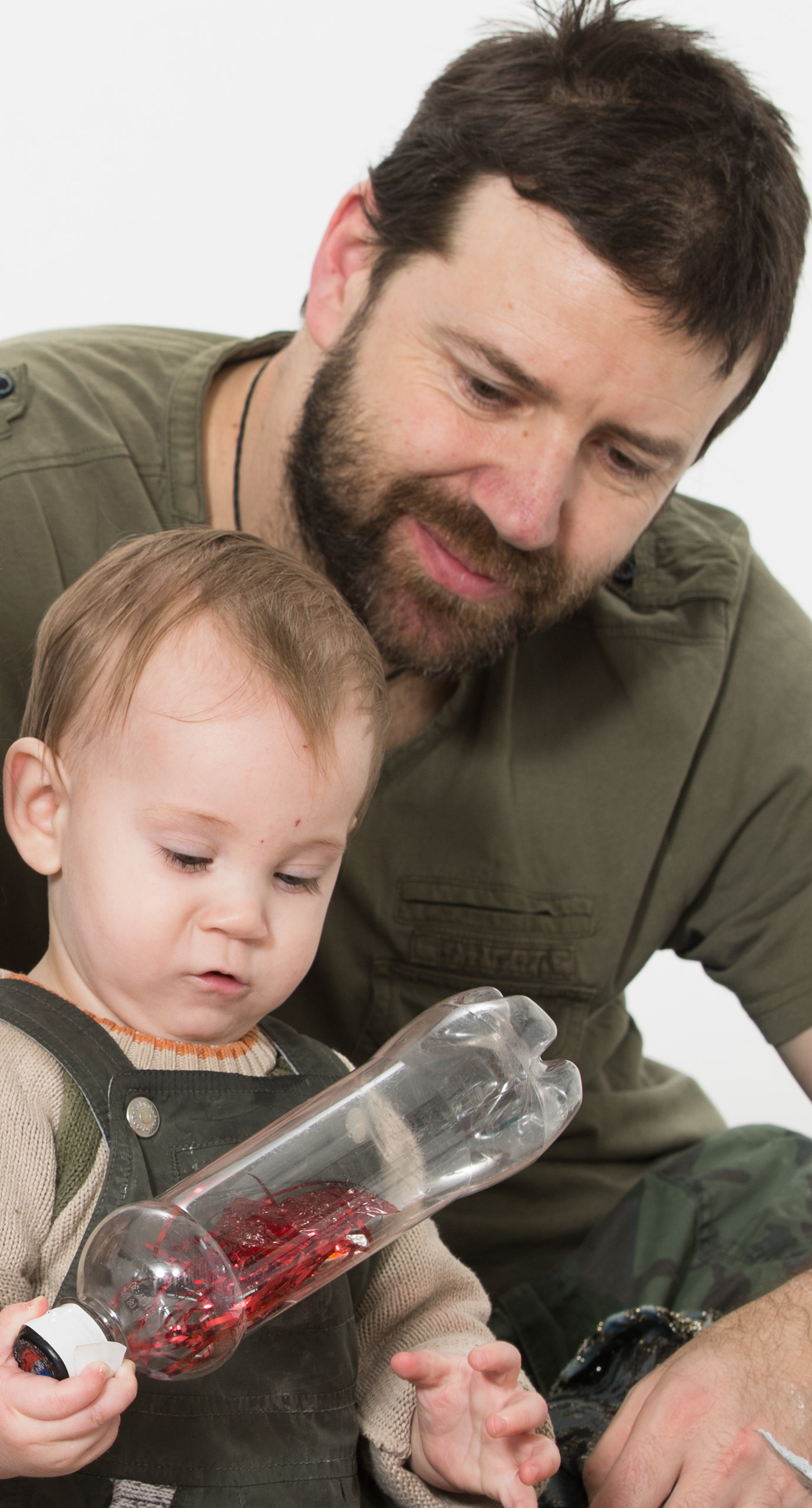

Side Quote Color:
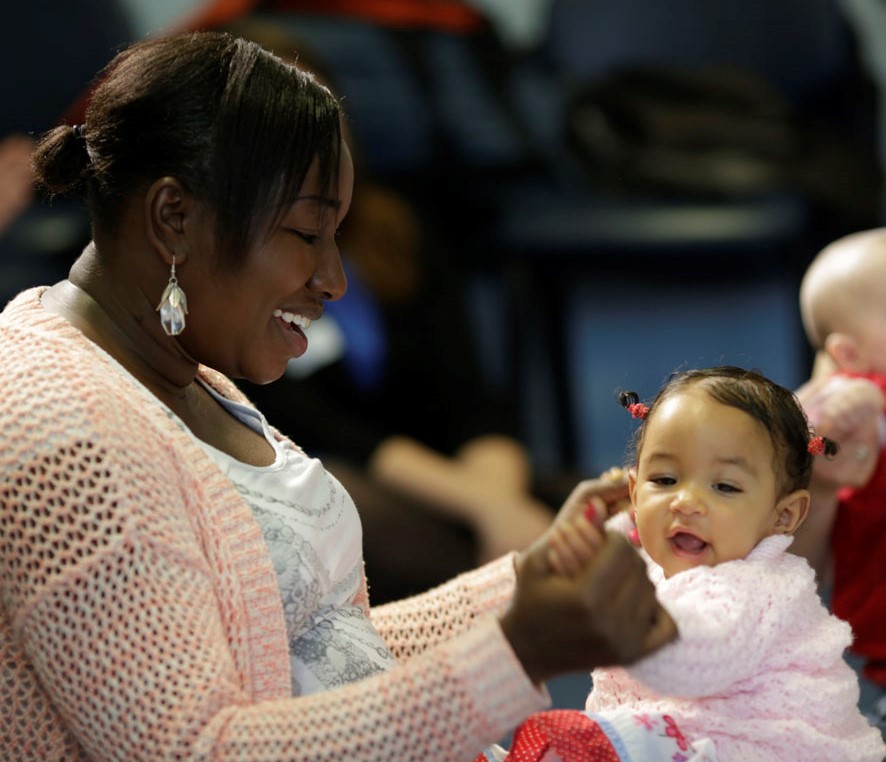
Learning Together Programme folder
If you have completed the Peep Learning Together Programme Training, you can:
- access the Learning Together Programme in the log-in Members Area
- opt to buy this Programme folder, so that you have a printed copy for easy reference.
